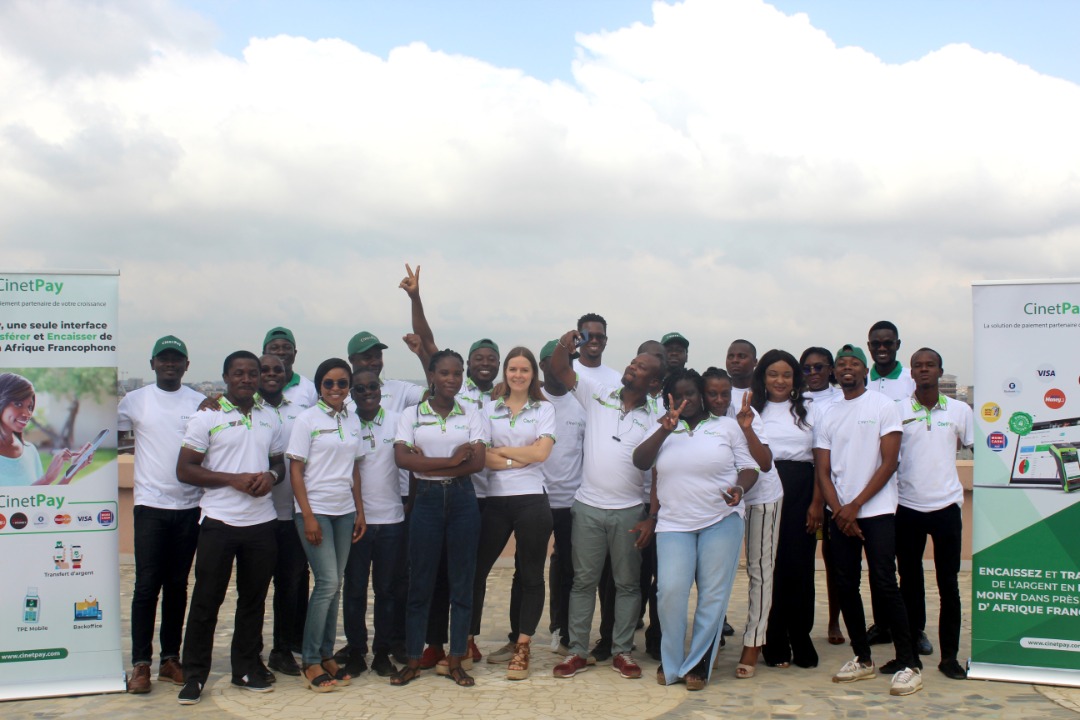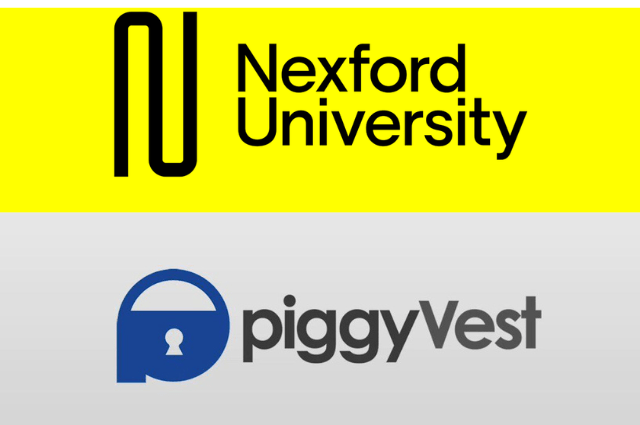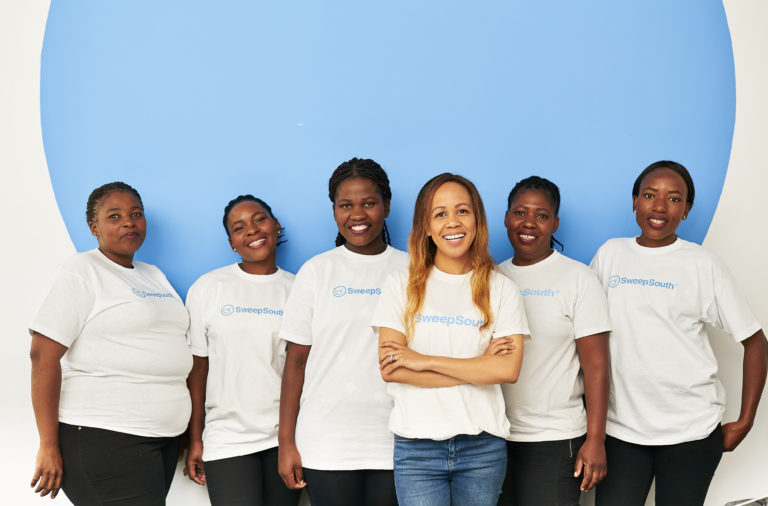CinetPay is closing in on Francophone Africa dominance after 5 years of grudgingly bootstrapping

2016 is the year. Idris Marcial Monthe recently completed the Abidjan Founders Institute. Monthe was feeling quite confident after an incredible three months of learning from the best.
With little to no experience in the financial sector, he and Daniel Dindji had just launched their payment gateway, CinetPay, in the same year. They met at the New Superior School of Engineering and Technology (ENSIT) in Abidjan, Côte d’Ivoire, while studying Computer Science.
However, this is not their first rodeo. Monthe and Dindji founded CinetCore, a platform specializing in the sale of domain names, in 2009. But they soon ran into a snag: payments.
“In our region, 80 percent of people have a mobile money account, while the remaining 10 to 20 percent have a bank account and an online payment card,” Monthe tells Techpoint Africa.
They attempted to open several PayPal accounts in order to receive their payments, but they were denied because Cote d’Ivoire, like many African countries, has limited PayPal usability and is unofficially said to be on a blacklist.
“We saw a good opportunity with mobile money because so many people have mobile money accounts.” However, the problem with mobile money is that the majority of the 80 percent is spread across three or five operators, making it difficult for a merchant to open four accounts, integrate four APIs, manage four reconciliations, and deal with four partners just to collect payments.”
As a result, they decided to create a gateway for their website that would connect all of these mobile money operators in one place. Clients soon began to inquire, “How can we replicate this for ourselves?” As a result, CinetPay was born.
The journey to getting funded

CinetPay announced a $2.4 million seed round led by 4DX Ventures and African payment gateway unicorn, Flutterwave, in December 2021.
Since 2019, CinetPay has been Flutterwave’s Francophone Africa partner.
“I believe Flutterwave was looking for a strong partner in Francophone Africa to explore the market and see if we could help them in our region, and that is how the partnership began.” Flutterwave had a customer in Cameroon and wanted to provide this customer with a mobile money solution; when they looked in Cameroon, they discovered that CinetPay would be their best partner.”
It has been a very good partnership for Monthe, allowing both companies to share information and experience.
When Techpoint Africa asks Monthe if he chose to bootstrap, he responds, “It is not our choice.” We live in a region where fundraising is extremely low, and many investors are unfamiliar with our region, market, and environment.
We would have raised funds since 2017 if we had the option.”
In comparison to the continent’s big four — South Africa, Kenya, Nigeria, and Egypt — funding in Francophone Africa is quite low.
However, this year has been a good year for the region, with several startups raising significant funding and the emergence of a unicorn.
Monthe sees this as good news for them as more investors become interested in Francophone Africa.
A little more information on CinetPay
CinetPay assists merchants in nine countries in the Francophone Africa region in accepting and collecting online payments from mobile money wallets.
“For example, if you are an eCommerce website and want to launch your website in nine countries in Francophone Africa, you must create nine companies, sign 36 contracts with each operator present in our region, integrate 36 APIs, and deal with 36 services for reconciliation, which is not easy.”
CinetPay combines all of these payment methods into a single gateway, similar to Flutterwave or Paystack, but for mobile money wallets.
Cameroon, Cote d’Ivoire, Senegal, Mali, Burkina Faso, Togo, Guinea, and Benin are among the countries where the company operates.
Monthe believes CinetPay’s geographical presence, among other things, has contributed to the company’s success.
“In Francophone Africa, we are present in more countries than our competitors.” On our website, we also offer a large number of payment options — 130 in total. Our payment page is very simple and easy to use; processing payments takes only one or two steps.
“Another thing is that we have the ability to assist large corporations, institutions, and public services.” And we assist these services in developing a fantastic solution. We don’t just provide payment services; we also assist our partners in digitizing their services.”
CinetPay serves public services, schools, banks, financial institutions, and eCommerce websites, among others, with over 350 merchants on its platform.
The company charges a commission on each transaction, and all merchants must pay an annual subscription fee of $20.
Challenges, conquests, and plans

Dindji and Monthe began attending incubators and accelerators in search of useful knowledge when they first started, having no idea how a payment infrastructure works.
They were accepted into Seedstars after being accepted into the Abidjan Founder Institute. They’ve also been accepted into a number of government and private incubators. A chance he believes has aided CinetPay’s growth.
Monthe, surprisingly, did not see their lack of experience as a hindrance. It became a hobby for him.
“I am very passionate about innovation, so I don’t mind learning anything about it; I enjoy it.” It’s not a challenge to me; it’s a passion. My ambition is to make a difference in the lives of many people in Francophone Africa.”
The trick was to put into practice what he had learned at all of the incubators and accelerators on a daily basis.
Monthe is interested in establishing a non-profit organization to assist females in gaining access to education.
According to the University of Chester Area Studies Research Group’s Francophone Africa and the Equality Challenge 2019 Report, female literacy rates in Francophone Africa have not been increasing consistently, and outdated datasets are being used for policymaking and decision making.
“I believe that if more women are educated, the world will be a better place.” In comparison to men, women have a much higher capacity to do many things, such as earn a profit and work hard. This is my passion and my challenge, and it is something I intend to launch in the next five to ten years.”
He also jokes that if he hadn’t started CinetPay, he’d be a farmer.
There is also the issue of trust. Monthe claims that in order to solve this, the team has had to adopt a transparent approach to communication and collaboration. Of course, when dealing with other people’s money, this is critical.
“We provide the best product because causing losses leads to a loss of trust.” We work hard to provide merchants with the best payment experience in West Africa. Cash accounts for 99 percent of all transactions; in order to combat cash, you must first build trust.”
Monthe reveals an intriguing strategy in the face of the challenge of developing and retaining talent.
“We entered into an agreement with a high school to assist us in recruiting the best people one year before the end of their degree.”
Essentially, establishing a talent pipeline at an early stage.
The plan for the time being, however, is to concentrate on consolidating their position in Francophone Africa. CinetPay is collaborating with the Ministry of Finance on a regulatory sandbox. As they grow, they will be able to build bridges and important connections.







